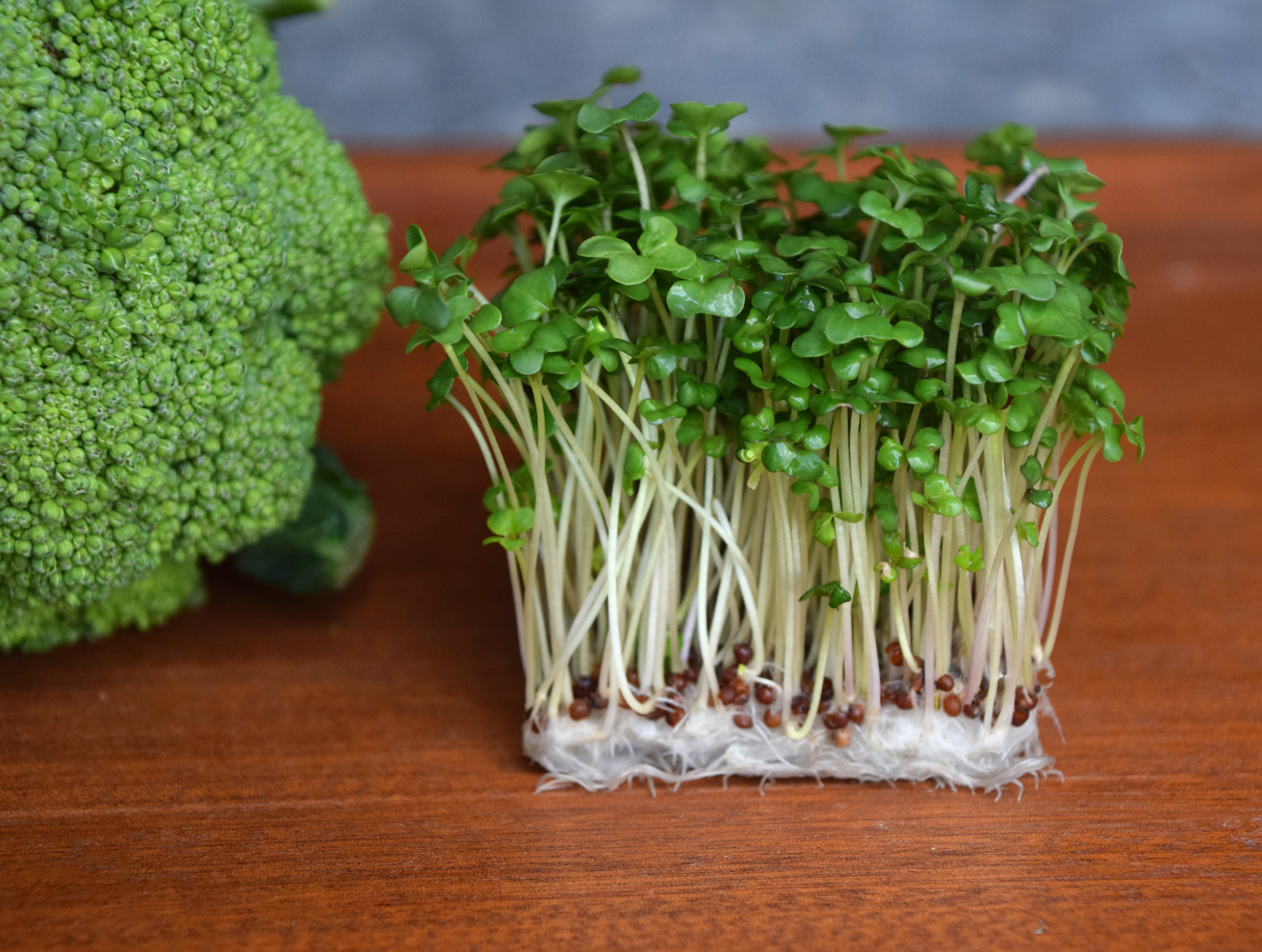Research News
Oct 24, 2023
- Science
Small but mighty: the hidden power of broccoli sprouts
Broccoli sprouts have been discovered to contain seven times more polysulfides than mature broccoli
Scientists investigated how germination impacts the polysulfide content and composition of broccoli sprouts
The study revealed that the total polysulfide content of broccoli sprouts was significantly higher than that of mature broccoli
Credit: Osaka Metropolitan University

Remember when your parents used to say, “Eat your greens, they are good for you”? Well, they were really onto something. Several studies have shown that higher intakes of cruciferous vegetables like broccoli, one of the most widely consumed vegetables in the United States, are associated with reduced risks of diseases such as diabetes and cancer, thanks to their organosulfur compounds, such as glucosinolates and isothiocyanates that exhibit a broad spectrum of bioactivities including antioxidant activity. However, few studies have focused on the endogenous content of polysulfide in broccoli sprouts.
A research team led by Assistant Professor Shingo Kasamatsu and Professor Hideshi Ihara of the Graduate School of Science at Osaka Metropolitan University, investigated the amount of polysulfides in broccoli sprouts during the process of their germination and growth. Building upon their previous work, where the research team demonstrated the abundance of polysulfide molecules in cruciferous vegetables.
The team found that total polysulfide content in broccoli sprouts significantly increased during germination and growth, with an approximately 20-fold increase in polysulfides on the fifth day of germination. Furthermore, they discovered a number of unknown polysulfides with indeterminate molecular structures. These findings suggest that the abundance of polysulfides in broccoli sprouts may contribute to their well-known health-promoting properties.
Dr. Kasamatsu stated, “The discovery of the significant increase in polysulfide content during the sprouting process from broccoli seeds was completely by chance and very surprising. This finding suggests that polysulfides may play an important role in the process of plant germination and growth. Further investigation of the pharmacological function of these unknown polysulfides could lead to the development of new preventive and therapeutic approaches and medicines for neurodegenerative diseases, stroke, cancer, inflammation, and other oxidative stress-related diseases.”
The results of this research were published in Redox Biology.
Funding
This work was supported, in part, by a Grant-in-Aid for Scientific Research (C, B and S), Challenging Exploratory Research, and Transformative Research Areas “Life Science Innovation Driven by Supersulfide Biology” (AIII) from the Ministry of Education, Sciences, Sports, Technology (MEXT), Japan (19K06537, 22K06148, 18H05277, 21H05258, 21H05263, 22K19397, 16H04674, 20K21256, 21H02082, 21H05263), and Japan Science and Technology Agency (JST), CREST, (JPMJCR2024). This work was also supported, in part, by the Smoking Research Foundation (2017G036), by Fuji Foundation for Protein Research to, by the Asahi Group Foundation, and by the 2023 Osaka Metropolitan University Strategic Research Promotion Project (Young Researcher).
Paper Information
Journal: Redox Biology
Title: Untargeted polysulfide omics analysis of alternations in polysulfide production during the germination of broccoli sprouts
DOI: 10.1016/j.redox.2023.102875
Author: Shingo Kasamatsu, Takuma Owaki, Somei Komae, Ayaka Kinno, Tomoaki Ida, Takaaki Akaike, and Hideshi Ihara
Published: September 6, 2023
URL: https://doi.org/10.1016/j.redox.2023.102875
Contact
Shingo Kasamatsu
Graduate School of Science
E-mail: kasamatsu [at]omu.ac.jp
*Please change [at] to @.
SDGs

